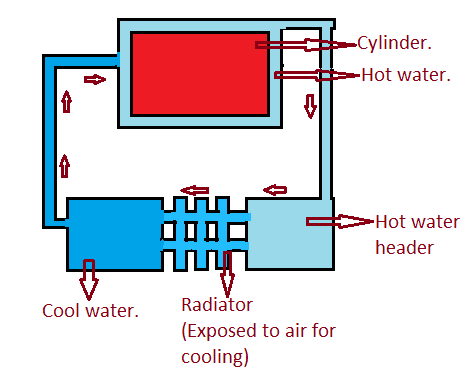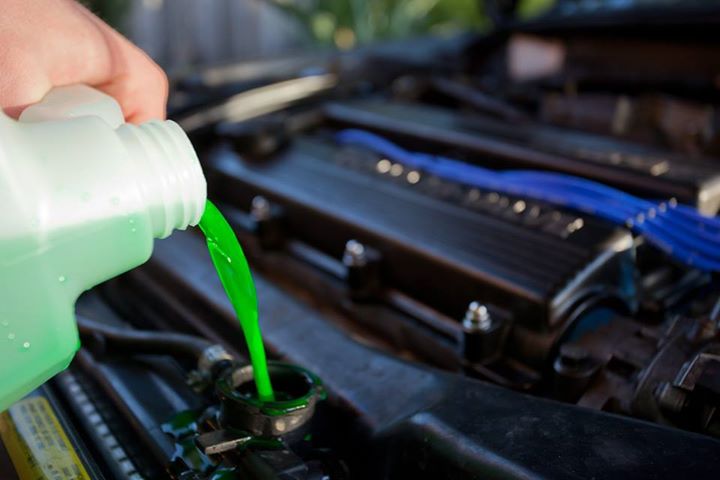Introduction: Fuel filter seals are an important part of your car’s fuel system. They’re designed to keep contaminants out while also keeping gasoline vapors in, so they can be safely vented away from your engine compartment. But what exactly are fuel filter seals, and why do you need them? Let’s take a closer look.
What is a Fuel Filter Seal?
A fuel filter seal is a rubberized material (typically neoprene or silicone) that acts as a barrier between the fuel filtration system and the surrounding engine compartment. It works by preventing contaminants from entering the fuel filtration system, and allowing the vaporized gasoline fumes to escape safely into the atmosphere. This helps prevent corrosion or excessive heat buildup from combustion processes occurring nearby, which could damage your engine components over time. In some cases, metal may also be used for applications where higher operating temperatures exist (such as in diesel engines).
Why Do I Need a Fuel Filter Seal?
Having a properly functioning fuel filter seal is essential for ensuring that your vehicle runs efficiently and safely. Without it, contaminants can enter the fuel filtration system, resulting in reduced engine performance and potentially even long-term damage to components like spark plugs or cylinders. Additionally, if gas fumes are not properly vented away from your engine compartment they can become trapped inside of it, leading to increased pressure and potential issues with overheating or ignition problems over time.
How do I maintain my Fuel Filter Seal?
The best way to maintain your fuel filter seal is by regularly inspecting it for signs of wear and tear such as cracks or tears in its surface material. Additionally, you should make sure that any connections associated with it (such as hoses or clamps) are secure and free from corrosion or damage. Finally, replacing any worn out parts with new ones when necessary will help ensure that your seal continues to function properly for years to come.
How to avoid diesel fuel leaks?
To avoid diesel fuel leaks, you can take the following steps:
- Regularly inspect and maintain fuel lines, hoses, and fittings. Look for any signs of wear or damage, such as cracks, leaks, or loose connections, and replace or repair them as necessary.
- Make sure that all fuel tank and line connections are properly tightened and that there are no missing or damaged gaskets.
- Keep the fuel tank clean and free of debris. Any buildup or contaminants in the tank can cause clogs or blockages that may lead to leaks.
- Use only high-quality, clean diesel fuel that meets industry standards. Low-quality fuel can contain impurities that can damage fuel lines and other components.
- check for leaks in the fuel system before and after each trip, and take the necessary action if any leaks are detected.
- Have a mechanic service your diesel engine at regular intervals, including a check of the fuel system.
By following these steps and being vigilant about inspecting and maintaining your diesel fuel system, you can help reduce the risk of leaks and keep your engine running smoothly.
Can you drive with a fuel filter leak?
It is not recommended to drive with a fuel filter leak. A fuel filter is designed to remove impurities from the fuel before it reaches the engine. A leak in the fuel filter can allow dirty or contaminated fuel to enter the engine, which can cause serious damage to the fuel system and engine. It also can cause a reduction in the engine performance, reducing power, and increasing emissions.
Additionally, driving with a leaky fuel filter can be dangerous because it can cause the engine to stall or fail while you’re on the road.
If you suspect that you have a fuel filter leak, it’s important to have it checked and repaired as soon as possible. A qualified mechanic can inspect the fuel filter and determine the cause of the leak and then repair or replace it as necessary. In some cases, a clogged filter may just need to be replaced, rather than trying to fix it, which is always safer and efficient.
It’s also worth noting, running your vehicle with a low fuel level can cause your fuel filter to become damaged, so keeping an eye on your fuel gauge and refilling as necessary, is always good preventative measure.
Are fuel leaks easy to fix?
The ease of fixing a fuel leak can vary depending on the cause of the leak and the location of the leak within the fuel system. Some fuel leaks are relatively simple to repair, while others may be more complex and require more extensive work.
If the leak is caused by a loose or damaged fitting, for example, the repair may be as simple as tightening the fitting or replacing a damaged gasket. Similarly, a minor leak in a fuel line or hose may be able to be fixed by replacing the line or hose.
However, if the leak is caused by more serious damage, such as corrosion or a puncture in the fuel tank, the repair may be more complicated and may require the replacement of more than one component. Similarly, if the leak is caused by an issue with the fuel pump or injectors, the repair may be more difficult and require the skills of a professional mechanic.
In general, it’s recommended to take your vehicle to a professional mechanic if you suspect a fuel leak, so they can inspect the fuel system, locate the source of the leak and determine the necessary repairs. They have the appropriate equipment and experience to diagnose and fix the problem safely and efficiently.
Keep in mind, It’s important to address fuel leaks as soon as possible as they can cause damage to the vehicle and may even be dangerous if the fuel spills and comes into contact with hot engine parts or cause fire hazards.
Conclusion:
A fuel filter seal is an important component of any car’s fuel system because it prevents contaminants from entering the system while also allowing gases to vent away safely into the atmosphere instead of becoming trapped in your engine compartment where they can cause long-term damage due to overheating or corrosion. Regularly inspecting your seal for signs of damage or wear will help ensure that it continues to function properly over time so you can get the most out of your vehicle’s performance without having to worry about unexpected issues down the road.


